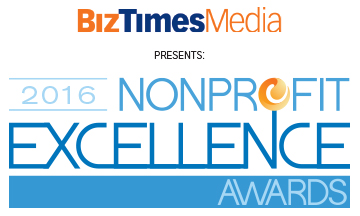Dr. Angela Marx, of Peace of Mind, LLC, presented on April 23rd 2020 during a DSAW webinar. We are summarizing the presentation here. Please access the recording of the webinar for further information.
Neurodiversity & Developmental Differences
Developmental Differences can cause disability, but Dr. Marx prefers not to call them “disorders”
High level definition of neurodivergence is all brains and minds work differently
People with developmental differences are neurodivergent
People without developmental differences are typically developing or neurotypical
Focus on accommodations and how to set up an environment for developmental differences
Mental Health
Focuses on social-emotional functioning and development
Everyone’s responsibility
Behavioral Health
Outward presentation of our mental health
Things we can observe and see
Focuses on symptoms
Neurodevelopmental Differences
Your child’s neurodevelopmental needs can impact their learning, behavioral, and emotional needs. Left side of the graphic lists difference in brain styles and the right side lists mental and behavioral health. Differences on the left side can impact behaviors on the right side.
On Diagnosis
Getting a diagnosis can be tricky
Important but not the be all end all
All children's develop at different rates
All children have “uneven” developmental profiles
strengths and weaknesses
Especially true for neurodivergent children
Early identification vs intervention
Acknowledging the diagnosis early on is important, but there isn’t always something to be done right away
intervention isn’t always necessary! Might just need support and accommodations
Co-occurring Differences
2 neurodevelopmental differences can occur at once (happens 83% of the time)
dual diagnosis
EX: motor developmental difference and speech and language difference
Medical and Physical health influences developmental and mental health
Focus on how the mind works not what the mind can’t do
Experts & Approaches
Lots of outdated information around this topic
Intervention and Treatment vs Promoting Healthy Development
one isn’t better than the other
Intervention and Treatment isn’t always needed
Dr. Marx prefers Promoting Healthy Development
Intervention/ Treatment
instances where this is necessary
professionals as experts
not every professional your child sees will be up to date
Focus on “treat” developmental difference, diagnoses, or disorders
Focus on “training” the child to act a certain way, match what we perceive as typical
Promoting Healthy Development
Parents are the experts
Not a right or wrong way to develop
Support child’s unique development
Supports emotional well being and relationships over skill acquisition
Promoting Healthy Development
All brains are wired towards growth and optimal development
even if you did nothing
Focus on social-emotional needs and accommodations for developmental differences
Strive to understand unique brain and needs
All children need
Freedom to play and learn
children lean through playing
children communicate through playing
children do not need to be taught how to play- natural party of their world
does not need to involve words or direct teaching
meet your child where they are at
you can engage with the child just by enjoying them and being yourself as their parent
Sense of self and belonging
important for parents to understand masking
when a child changes natural personality to conform to social pressures
child notices they are doing something differently and feels the need to change
happens when people try to “train” them
causes confusion, communicates that their natural way of being is wrong
can also cause mental and behavioral health problems down the line
help your child understand their strengths and differences
Presume competence
the individual knows what is best for them
provide support
Accept who they are- fully whole human with a bright future
Help them build confidence
Relationships and connections
learn sensory needs and interest to genuinely connect
collaborate to establish routines, rules, preferences
accommodate for unique communication needs
more than speaking words
Peers
not necessarily same-aged but same interest and social preferences
Connect to local resources
Examples of Accommodation/ Support
Different than providing a treatment
Not focused on changing anything
Examples
if an individual does not prefer to use words or spoken language, you can learn how the child chooses to communicate (Augmentative and alternative communication)
Tap into their natural interests and accommodate their natural learning style - not forcing them to learn like everyone else, honoring processing speed
Setting up an environment to support the sensory needs of the child
Challenging & Difficult Behaviors
Who defines a difficult behavior?
if not disrupting or hurting others don’t take them away
if the behavior is hurting and disrupting others, it is most likely an outward expression of internal distress
not giving you a hard time but having a hard time
No need to change all atypical behaviors
Atypical behaviors serve a purpose for the child
Meltdowns/ Shutdowns
Way to deal with overwhelm
Discover stressors and remove them
Developmental Expectations
Expectation Gap
when we assume that our child should be able to do something that their brain is not ready to do yet
Impulse Control/ Sharing & Turning Taking
Typically developed around age 5
Emotional & Behavioral Control
developing into adulthood
Expect inconsistency and unpredictable behavior
Respect child’s right to say “no”
not running the house but respecting their right to express what feels right for their brain and body
Other Influences On Behavior and Emotions
Rapid brain growth
Abilities are still emerging
Sleep requirements not being met
Hunger
Sense of safety
Body states and pain
Ups and downs of social and emotional growth
Growing power needs
Regulation
Expect to see behavioral dysregulation/difficulties
all children can lost control in times of stress
Co-regulation
sharing own calmness to help child calm down
When More Support May Be Needed
Sudden/ persistent changes from what is typical
Difficulties function or doing things the child has consistently been able to do
Increase and consistency in challenging behavior
can’t be calmed or soothed in usual ways
Child saying that something is wrong or hurts
Physical symptoms
stomach aches, sleep difficulties, appetite changes, fatigue
Supports
Medical Concerns
Primary Care Provider
Developmental Pediatrician
Neurology
Gastroenterologist
Feeding/Swallowing
Ear Nose and Throat
Audiology
Therapies
Occupational
Physical
Speech and Language
Behavioral Treatments
Massage, art, Equine
Mental Health
Licensed Professional Counselor
Psychologist
Psychiatrist
Community-Based
case manger
Schools (psychoeducational/learning)
Local resources
Psychological/ Neuropsychological Testing
Identifies unique neurodevelopmental profile
Provides diagnoses if needed
Provides recommendations
Can offer treatment and intervention
Offers access to supports and services
Resources
Therapist Neurodiversity Collective
Parenting Resources







